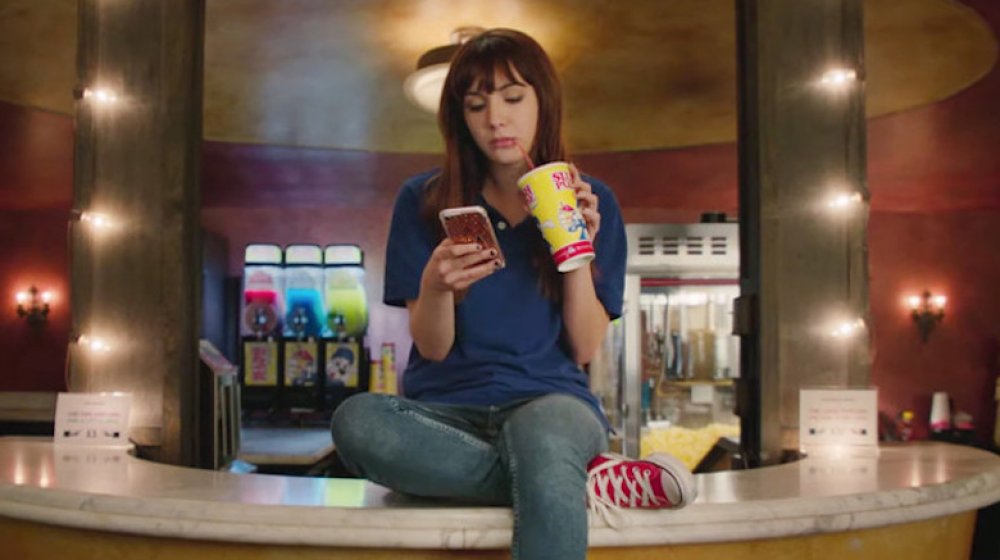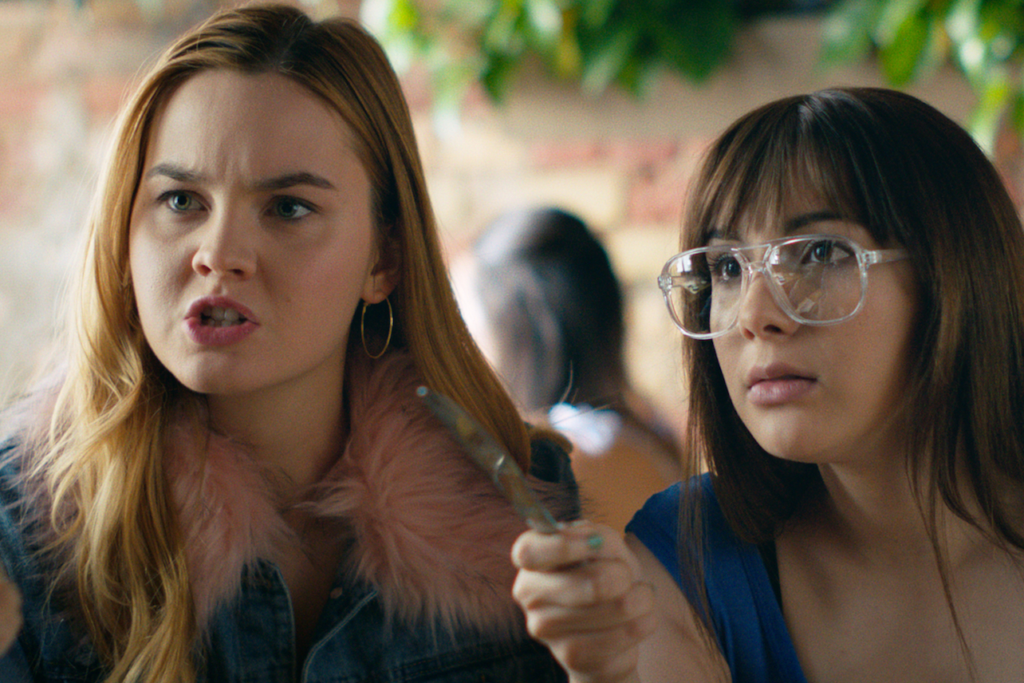Hitting her Marks
I am perhaps not the best person to judge Banana Split. It’s basically impossible for me to give a negative review to a movie like this. It is a funny and unique teen dramedy about kids who are figuring out their place in life as they stumble towards the end of high school. That’s, like, a quarter of my favorite movies. It even has a scene set at a school dance, one of my biggest guilty pleasures, although prom occurs at the beginning rather than the usual climax for these joints.
But even if this hadn’t been exactly my cup of tea, I think I’d still like it. Although it has some crucial flaws, it is buoyed by some even more important strengths. And the two most important of those strengths can be tied to one person: Hannah Marks.

First, Marks is one of the film’s writers, along with Joey Power. The pair also co-wrote and co-directed After Everything, which was produced just a few months before Banana Split. (This outing is directed not by Marks and Power but Benjamin Kasulke in his only-ever directing gig.) The script has some of the funniest dialogue from a teen movie I’ve watched in some time. It crackles with Superbad-style authenticity and wit, as if this is the slang, banter cadence, and sense of humor that teens might actually use. It’s a perfect antidote to cringe-inducing, pandering dialogue of films like Status Update. Marks was only 25 when Banana Split premiered at the LA Film Festival.
Marks is also the lead, and she is absolutely terrific: funny, disarming, likeable, and projecting complex human interiority without ever losing the sense that she’s playing an erratic 18-year-old. It’s not quite Elliot Page in Juno or Saoirse Ronan in Lady Bird, but it’s maybe a tier or a tier and a half beneath that, which is still lofty praise.

Like Marks’ two other screenplays to date (After Everything, Mark Mary + Some Other People), Banana Split is concerned with complex emotional hangovers after times of trouble. Its central relationship is tenuous and forged under somewhat contradictory terms — Marks’ recurring fascination.
The story picks up after the breakup of longtime high school couple April (Marks) and Nick (Dylan Sprouse) just before graduation. April befriends Nick’s new girlfriend Clara (Liana Liberato) first out of an intent to sabotage their relationship, but quickly because they actually really like each other. They decide the only way they can stay friends is if they avoid conversations about Nick and keep their friendship secret from him to avoid weird conversations. The setup avoids the expected farce beats (e.g. “will she figure out I’m his ex?”) to jump straight into the more interesting character dynamics.
The result is a film structured like a romcom but about platonic friends, a la I Love You, Man. There’s some irony baked into the scenario: The actual romance that causes the conflict in the premise is totally separate from the relationship that the film is about, occurring largely in the background. But despite it being a platonic friend romcom, there is indeed some romantic charge between April and Clara — Marks and Liberato have a real affection for each other that movies typically reserve for lovers. The film repeatedly lampshades the potentially sapphic vibes between them.

It’s not at all a flawless film; in fact, its problems are just as striking as its strengths. For starters, the casting aside from Marks is extremely underwhelming: Liberato is passable, but Sprouse feels very off-key from the character as he’s described in the screenplay. He gives dirtbag vibes, not soul-wrecking deep-love vibes, and his chemistry is off with Marks and Liberato. Luke Spencer Roberts, meanwhile, delivers an odd, miscast turn as the best friend-maybe-love interest Ben; it’s not a bad performance, but it doesn’t entirely click with the film around it.
The script, as funny as it is, doesn’t stick the landing on every detail. The character development gets a bit chaotic and messy in the second half. It’s undisciplined but still well-written, chaotic in a satisfying shit-hits-the-fan sort of way. The film also has a particular grating example of one of my least favorite teen movie tropes: the precocious, profane, overly-mature little sibling, courtesy Addison Riecke. (Riecke’s performance is funny, though.)
But, overall, it’s a hit of a teen comedy. I laughed a lot, and I really dug the way Marks made the film her own, both as lead and as writer. Thus far, I’ve largely admired Marks’ touch as writer and, in other films, director; I’d also love to see her star in more heartfelt comedies from her own pen like she does in Banana Split.
- Review Series: Hannah Marks
Is It Good?
Good (5/8)
Dan is the founder and head critic of The Goods. Follow Dan on Letterboxd. Join the Discord for updates and discussion.

